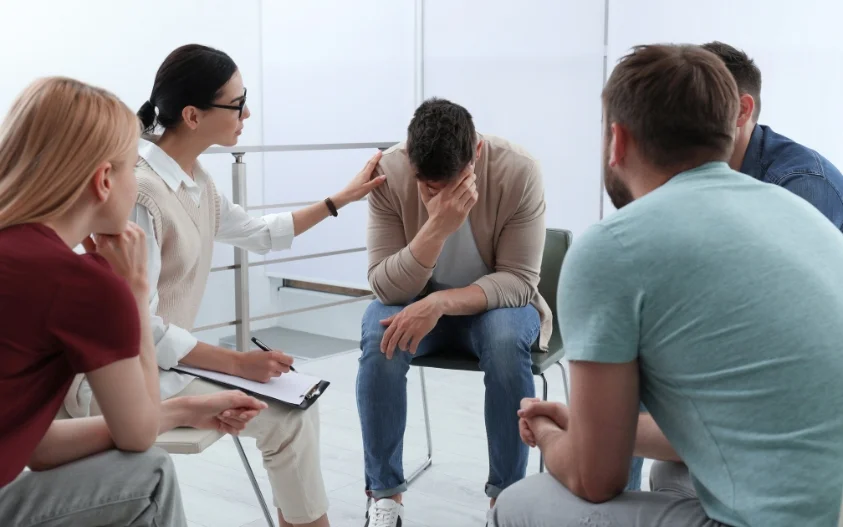24/7 Helpline:
(866) 899-111424/7 Helpline:
(866) 899-1114
Learn more about PTSD Treatment centers in Sardis
PTSD Treatment in Other Cities

Other Insurance Options

Meritain

American Behavioral

Carleon

Ceridian

United Health Care

Magellan

Premera

Optum

Excellus

Molina Healthcare

Choice Care Network

PHCS Network

MHNNet Behavioral Health

Absolute Total Care

Kaiser Permanente

ComPsych

Optima

Highmark

Sutter

Access to Recovery (ATR) Voucher



















